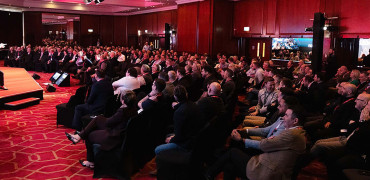We’ve written before on The Hub about the increasing importance of being able to show what you as a business are doing to mitigate your impact on the climate crisis.
We are all being asked to look at ways of reducing energy consumption to help tackle the biggest emergency facing us today, but now, the added demand is that your customers are also asking about your ‘green credentials’.
Rather than conducting ‘business as usual’, global corporations are now insisting on working with companies that are trying to be part of the solution and not part of the problem.
This is because as a supplier to them, you fall under Scope 3 of their carbon emissions and, whilst they can directly impact their own, Scope 1 and 2 emissions, they are reliant on you and other suppliers for their Scope 3.
They therefore need suppliers such as HVAC designers and installers to be able to clearly demonstrate what they and their business are doing to lower their carbon footprint.
Accreditation will help you stand out in an increasingly sustainability-conscious market
Show what you are doing
So just how can someone designing, installing, commissioning and maintaining the HVAC in a construction project clearly show what they are trying to achieve?
Demonstrating just how much effort you are putting into lowering the carbon footprint of your business can be hard when you are trying to raise productivity and profit, while lowering running costs and outgoings.
And that’s not forgetting the ins-and-outs of running a business and keeping your head above the water.
And that is exactly where our accreditation scheme comes in as the M&E contractor, MCS (Maintenance & Contracting Services) Ltd has discovered by receiving accreditation for its work to reduce carbon emissions across its business.
The company was the third to successfully be reviewed as part of the accreditation scheme naming them as a Committed Carbon Reduction Partner (CCRP). This accreditation recognises the steps that MCS is taking to track and lower the carbon footprint of their business.
MCS joins air conditioning specialist, Temperature Control and nationwide installer of solar PV, battery systems and renewable heating solutions, Sustain Homes in achieving CCRP accreditation.
The drive for decarbonisation
As far back as 2021, our contributors on The Hub were highlighting the growing importance of carbon and net zero to businesses.
Under the headline ‘Return to profit – but not at any cost’ our economics contributor, Jim McClelland looked at how the climate crisis was affecting the outlook for global business.
He found that almost regardless of the political and public-sector context, there is an unequivocal pull coming from the world of markets and money, all underpinned by the global investment market’s fast-growing interest in Environmental, Social and Governance (ESG) criteria and their adoption.
Even back then, he wrote “The impact of this focus on ESG factors is not only being felt in the Board Room — the ripples are eddying out deeper and deeper into all tiers of the entire supply chain.”
It’s clear to see that the ripples are now washing up on the shore of the construction industry.
Being fit for purpose
Just over a year ago, Karen Fletcher from The SectorScope also wrote about the changing trend amongst corporate clients under the headline “Forget government – construction clients are leading the way”.
Karen found that corporate clients are setting themselves higher targets than regulations and looking for more accurate measures of energy use and carbon emissions.
She has been covering stories of corporate tenants seeking out low-carbon and energy efficient buildings, across offices, data centres, universities and even warehousing.
Karen predicted that property developers and their tenants will drive interest in accurately measuring energy (and carbon) in the built environment. She also pointed to EPCs as not being fit for purpose and instead, looked to measures such as Energy Use Intensity (EUI) being more widely adopted and promoted.
The time to act is now
We currently have over 50 Partners that we’re working with through our CCRP programme, which can take up to a year to complete, depending on the size, scope and range of an individual business.
We set up the scheme specifically to help our Partners to demonstrate that they are trying to do the right thing and reduce their impact on the environment.
We believe that doing so will help them to secure new business by differentiating themselves from competitors.
Throughout the accreditation process, we support our partners with a tool kit to guide them on calculating their carbon footprint, setting targets, and training.
It’s all about developing the skills, knowledge and experience needed to devise effective carbon reduction strategies, and this is enabling the companies to stand out in an increasingly sustainability-conscious marketplace.
If you would like to learn more about CCRP accreditation, email our Partner Programme Team.
Oliver Collins is Marketing Manager for Contractors




